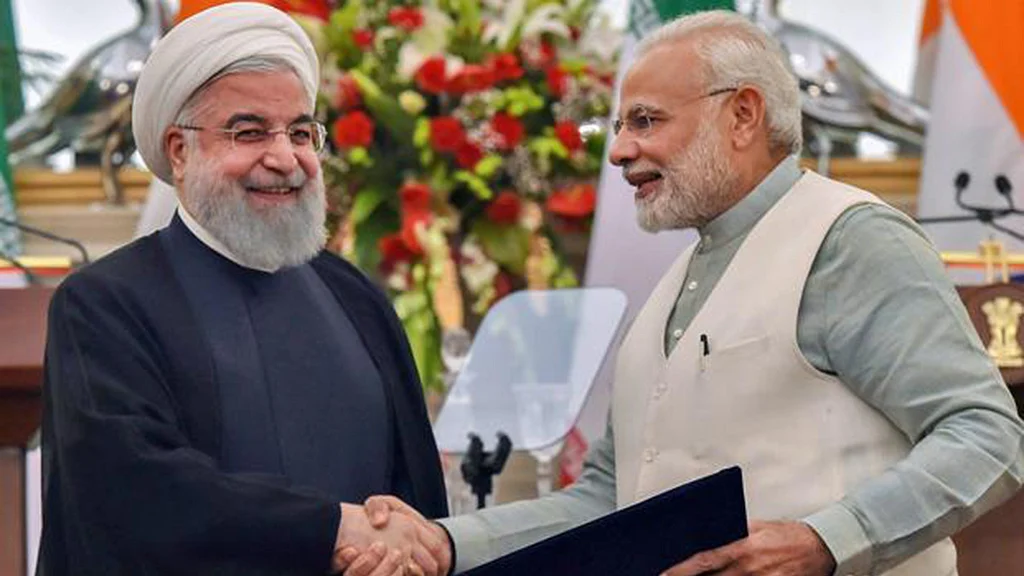Iran: Aware of Chabahar’s importance to India, Rouhani calls for Shia-Sunni unity
Friendship with Iran is crucial for India because of oil and Chabahar port, which opens an opportunity to trade with Afghanistan and Central Asia

A significant aspect of the recently concluded visit by Iranian President Hassan Rouhani got somewhat drowned in the cacophony over Nirav Modi-PNB scam. The maximum the media could highlight is the agreement related to Chabahar port––the issue which has already been discussed in the past. The fact that the visiting dignitary succeeded in sending a message to the Muslims of the country as well as the world got relatively little attention, though this was somewhat very unusual development on the Indian soil.
Curiously, his three-day (Feb 15-17) stay in India was very different from that of former Iranian President Hashmi Rafsanjani made in April 1995––that is 17 months before the emergence of Taliban in Afghanistan in September 1996.
Rafsanjani’s mention is important because he was the first post-1979 Islamic Revolution President to visit India. The then Indian Prime Minister PV Narasimha Rao broke protocol to receive him at the airport. This was the gesture made by the present PM Narendra Modi for his Israeli counterpart Benjamin Netanyahu last month, but not for Rouhani, who actually first landed in Hyderabad.
Rouhani, incidentally, did not make a trip to Lucknow, which has the biggest population of Shias in north India.
On the other hand, Shias (not Sunnis) protested against Rafsanjani when he had visited Lucknow and Hyderabad in 1995. They were against some reforms made in Iran, for example, banning muta (the concept of temporary marriage) and tabarah.
However, in the Imambara in Lucknow, he was cheered on by Shias, who had gathered in large numbers.
That was the time when Rouhani, as the Deputy Speaker of Majlis (Parliament), was known for his hard-line stand against India.
While on his visit to Hyderabad, Rouhani offered Friday (Juma) prayer (on February 16) in Makkah Masjid––where usually Sunni Muslims congregate––and called upon both Sunnis and Shias to unite. He minced no words to denounce President Donald Trump and also referred to the recognition of Jerusalem as the capital of Israel.
True, India did not support the United States on this issue at the United Nations, yet it is a known fact that both Trump and Israeli PM Benjamin Netanyahu are very good friends of Narendra Modi. Yet the visiting Iranian President did not hesitate at all to express his views.
Rouhani’s appeal in Hyderabad was underplayed by the media, yet it has its own significance as no Sunni Arab leader, who visit India, has made any such appeal to Indian Muslims and that too at a mosque.
Notwithstanding some differences between the two major schools of thought of Islam, post-Revolution Iran has managed to win goodwill of a sizable section of Sunnis around the world, including India.
The anti-Israel and anti-America stand–– besides the repeated appeal to Muslims to unite––has made Iranian leadership more popular among average Sunnis than the Gulf monarchies. The latter, especially Saudi Arabia, have failed to whip up the anti-Shia passion even though initially they backed the ultra-Salafist Islamic State, which Iran, and many others in the Sunni world too, alleges is a US creation.
Today, friendship with Iran is crucial for India because of oil and Chabahar port which opens an opportunity to trade with Afghanistan and Central Asia.
But, with Chinese freight trains already reaching Afghanistan and Iran, Beijing now has an eye on ports of Islamic Republic, including Chabahar.
Iran has already welcomed One Belt One Road (OBOR), also called Belt and Road Initiative, of China. This is in total contrast to the Indian position.
Follow us on: Facebook, Twitter, Google News, Instagram
Join our official telegram channel (@nationalherald) and stay updated with the latest headlines
- China
- Islamic State
- Prime Minister Narendra Modi
- Indian Muslims
- One Belt One Road
- Chabahar port
- US President Donald Trump
- Majlis
- Makkah Masjid
- Jerusalem
- Nirav Modi
- Israel Prime Minister Benjamin Netanyahu
- PNB Scam
- Iranian President Hassan Rouhani
- Hashmi Rafsanjani
- Hassan Rouhani's India visit
- Imambara
- Iranian revolution
- Prime Minister PV Narasimha Rao
